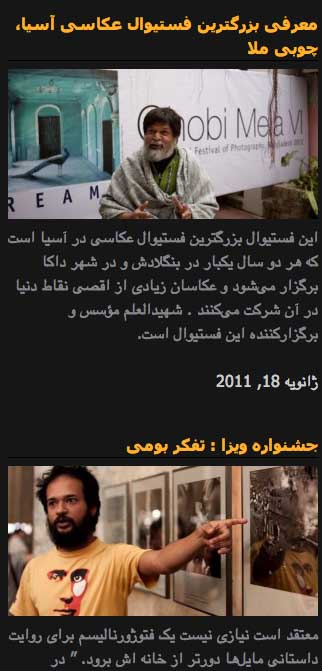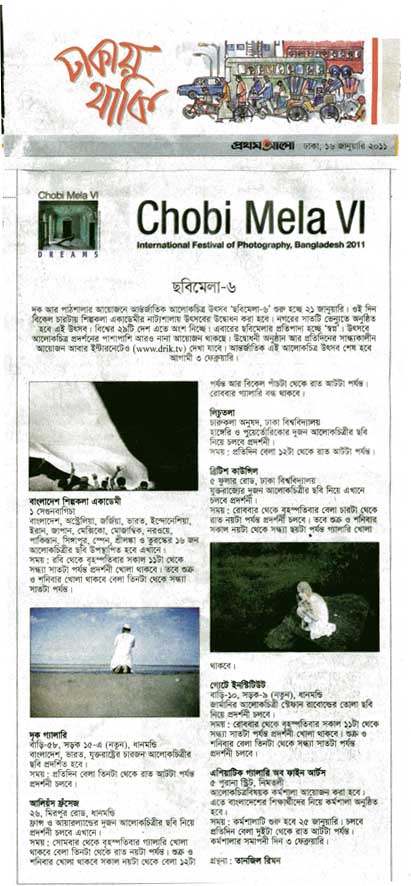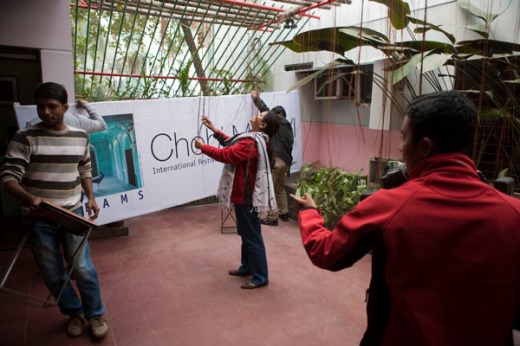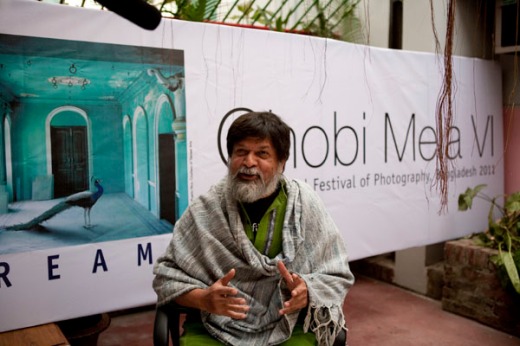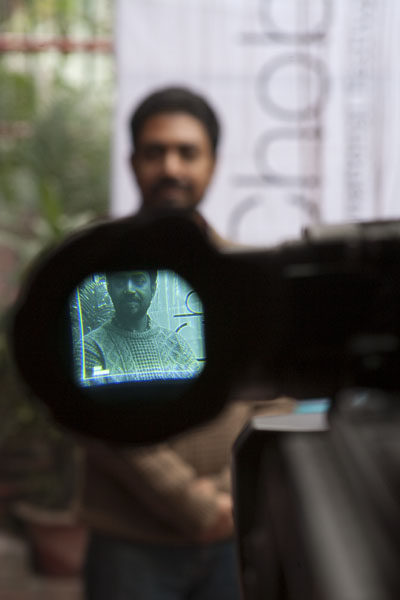Tag: Chobi Mela
Morten Krogvold Workshop
Subscribe to ShahidulNews
Chobi Mela VI 2011
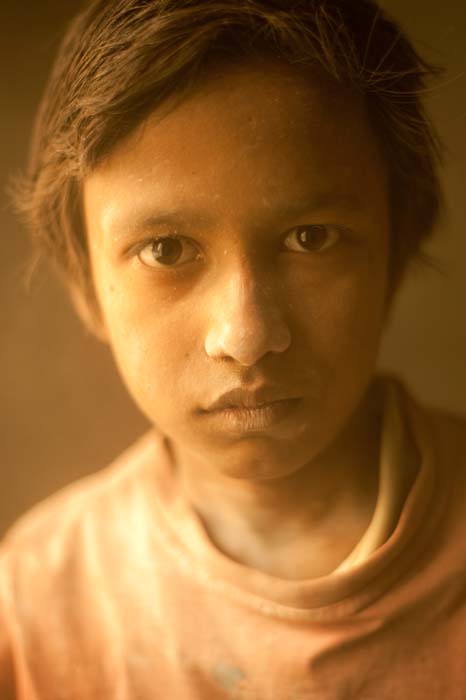
First of all, I would like to thank all 26 of the students in this workshop for being willing to undertake hard labor and endure pressure to push limits, break boundaries and grow. If have been critical in the beginning, it was because of my own passionate belief that they could succeed at a level they might not themselves imagine. I feel a responsibility to give them this opportunity to concentrate on what is most important, and to discover the joy in that hard, demanding work.
I am very happy that they now understand that photography is about self-discovery. I am pleased, and they should be pleased, about this wonderful work. This is their moment, and they should enjoy every bit of it.
A special thanks to Shehab, who has been very important in helping this to succeed.
Morten Krogvold
January 2011
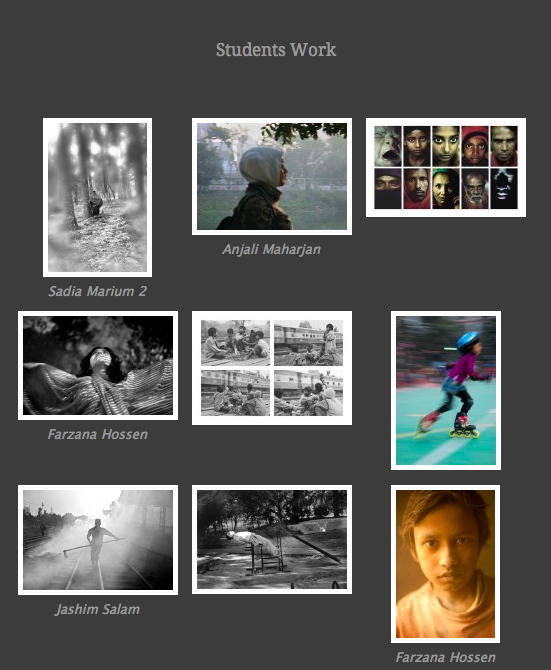
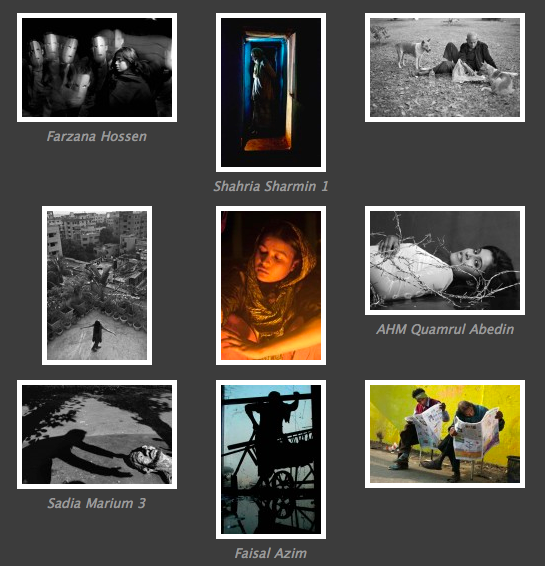
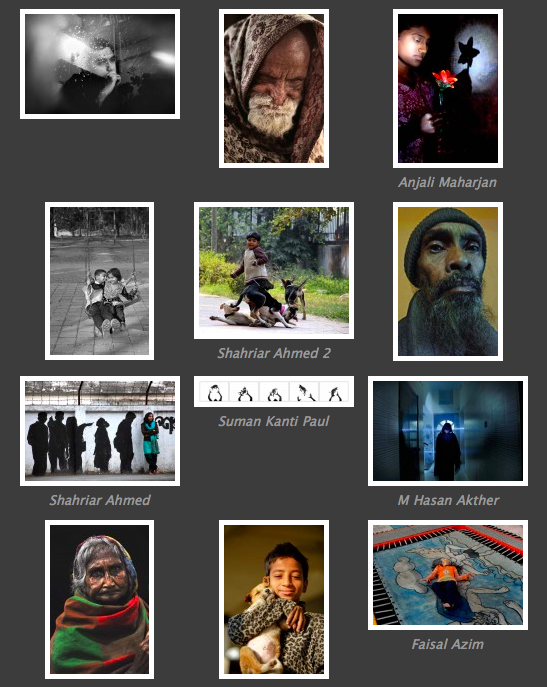
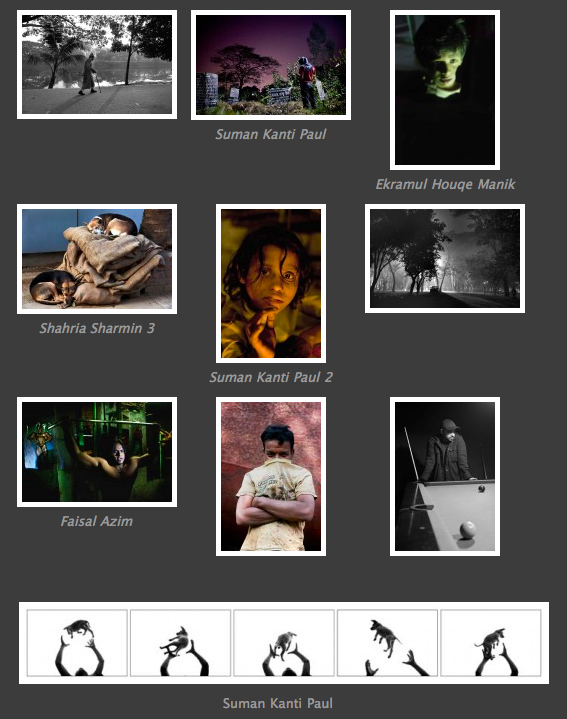
?
Chobi Mela VI highlighted on Iranian website
Subscribe to ShahidulNews
Source: Ali Akbar Shirjian:
Chobi Mela participant Ali Akbar Shirjian says it is “the first professional website on documentary photography in Persian language. It is the first production of Iran Workshop team to start of own dream through of photography language.”
Chobi Mela VI on Prothom Alo
Subscribe to ShahidulNews
Prothom Alo is the largest circulation daily in Bangladesh
16th January 2011
Countdown to Chobi Mela VI
Are you dreaming of coming to Chobi Mela VI or wishing you were coming?. A wish is voluntary and you make it consciously and have some power over making it come true.? Dreams on the other hand by definition, involve our unconscious mind. Do we have power over our dreams? Or do they have power over us? Can we make a wish come true ? 10 days to go to find out.
Yes, the countdown has started and taking a closer look at behind the scenes?of the festival?was Channel I, one of the partners of the Chobi Mela festival.
M. Mahbubur Rahman meticulously checks colours of prints. Photograph Habibul Haque
Shahidul Alam, Festival Director on Chobi Mela VI: Our right to dream on for a better majority world. Photograph Mahbub Alam Khan
Chobi Mela VI Press Conference
Subscribe to ShahidulNews
![]()

PRESS RELEASE
Chobi Mela VI to Open a Portal to a Restive World of Dreams
?All that we value, that we strive to uphold, all that gives us strength, has been made of dreams?
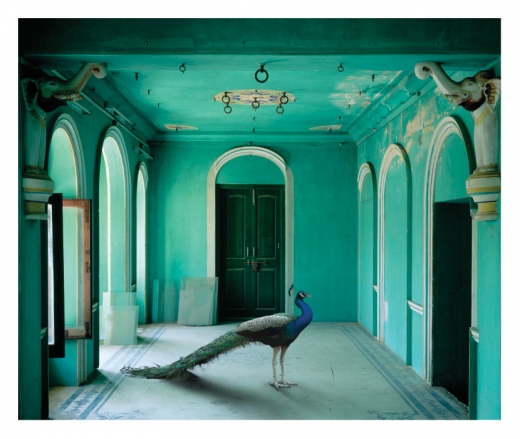
Dhaka, Bangladesh. 28 December, 2010😕 The Chobi Mela VI – International Festival of Photography will be held from 21 January to 3 February, 2011 in Dhaka Bangladesh and will present the work of creative artists participating from 30 countries. The festival with its theme ?Dreams? is designed to be a birthplace of ideas, and a crossover meeting point for many artists. It will open a portal to a mystical world of images showcasing new trends in photography and bringing to the fore issues of our troubled world.
The unique festival will be launched on the 21 January, 2011 at the Bangladesh Shilpakala Academy. Parallel exhibitions will be held at Alliance Francaise, The Asiatic Gallery of Fine Arts, The British Council, Drik Gallery, The Goethe-Institut and the Lichutala at Faculty of Fine Arts, Dhaka University. In congruence with the exhibitions there will be 8 workshops, 2 portfolio reviews and a week-long discussions, seminars and lectures at Goethe-Institut Auditorium that will initiate debates and discussions on issues central to contemporary photographic practice.
The main attraction on the 22 January at Goethe-Institut will be a video conference with Dr. Luis Moreno-Ocampo, Prosecutor, International Criminal Court.? In this position, his mandate is to select and trigger investigations and prosecutions of the most serious crimes of concern to the international community, namely genocide, crimes against humanity and war crimes. The Inaugural ceremony and the evening presentations will also be broadcast ?Live through Internet? at: www.drik.tv.
The first Chobi Mela festival (Dec.1999-January 2000) was launched by Drik and Pathshala South Asian Media Academy to fill the need for a forum for sharing work and ideas, a platform for debate that was missing on this side of the globe. This inaugural festival focused on ?Differences? in the world we live in and in a sense was prophetic. The twin towers disaster followed and buried beneath the rubble the freedoms that the world has since lost. ?In a world ravaged by war, to turn to ?Dreams? after ?Differences?, ?Exclusion?, ?Resistance?, ?Boundaries? and ?Freedom? is to return to what holds us together in the face of all our obstacles, the focus of all our longings. In a vastly unequal world, it is our insistence on justice and our ability to ride the waves, which still keeps us dreaming,? says Shahidul Alam, Festival Director and Managing Director of Drik. ?I dream that Chobi Mela will play a role in re-writing the history of photography, and correcting the extremely Eurocentric version of history that is currently propagated.?
Many bodies of work that went on to become well known were first shown in Chobi Mela. Considered to be the most demographically inclusive photo festival and the resulting pollination has led to many exciting exchanges, and given rise to several new festivals in the region for which Chobi Mela has been the catalyst.
Ensuring the general public?s access is an important part of the festival and admission for the festival is free. Mobile exhibitions on rickshaw vans are now a trademark of the Chobi Mela festivals. The festival provides an opportunity not only to enjoy the outstanding work of national and international photographers but also raises important social issues critical to our existence.
###
Chobi Mela Site
Chobi Mela Blog
For more information please contact Chobi Mela Secretariat
House 58, Road 15A (New),?Dhanmondi, Dhaka 1209
Tel +8802 8112954, 9120125, 8123412
Media Manager:
Qamruzzaman:
Tel: +8801911224884
Liason and Communication:
Chulie de Silva:
Tel: +8801927122141
Chobi Mela featured in Italian Vogue
Subscribe to ShahidulNews
Bangladesh dreams
Vogue Italy
A new wave of talented and creative photographers is emerging in the country
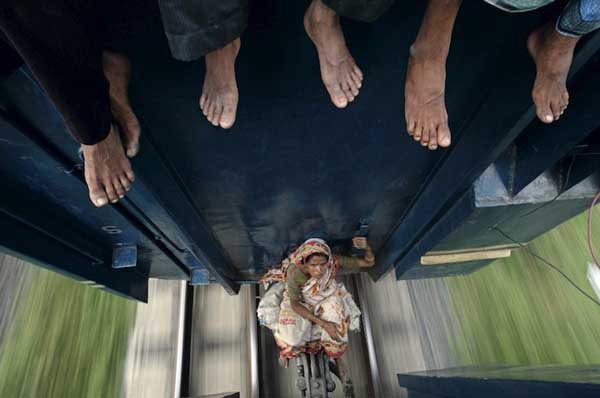
Except for its poverty and natural disasters,Bangladesh rarely makes the news. But?fans of art, especially photography, would do well to keep an eye on this corner of the Indian subcontinent, where a lot is going on.
Shahidul Alam, founder of the South Asian media academy Pathshala in Dhaka and many-time jury member for World Press Photo, describes it as a “revolution in photography: an explosion of ideas and talent centred upon the capital”; the defining features of this new movement seem to be diligence and a refusal of “Eurocentricity”.
Stefania Ragusa, Vogue Italia, December 2010 (n. 724), p. 46
PHOTO BANG V12 (PDF of full article – in Italian)
Tracing Freedom
Subscribe to ShahidulNews
![]()
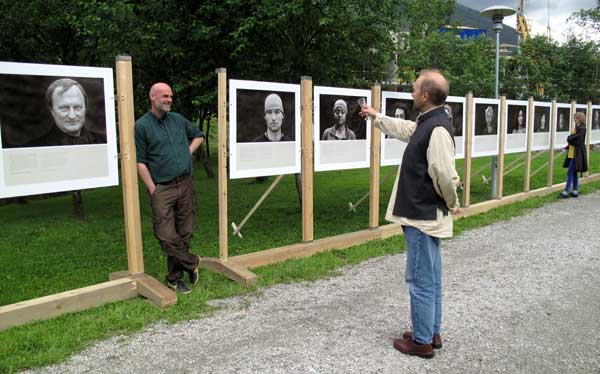
In late 2008 and early 2009 the Norwegian photographer Tom Hatlestad spent four months driving overland between Norway and Bangladesh. Along the way, he asked a hundred people to define freedom. Some of them are featured in this exhibition. Tom began dreaming of making an exhibition of photos and statements on perceptions of freedom after hearing that the theme for the 2009 Chobi Mela international festival of photography in Dhaka would be ?Freedom?.
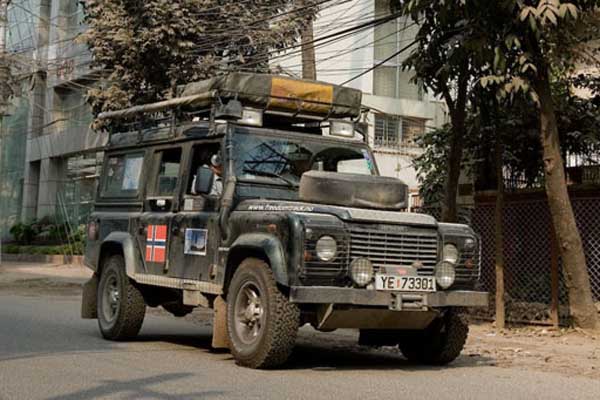
Freedom of movement – Tom has always loved to travel freely, and has visited some 50 countries to date. As a Norwegian citizen, he is also privileged in being able to travel to most places without problems. However, freedom of movement is actually less now than it was 50 years ago, mostly due to international politics and increasing levels of tension. With closed borders in Afghanistan, Syria, Iraq and Burma making the northern and southern routes impassable, Tom drove the only remaining overland route between Norway and Bangladesh: Sweden, Latvia, Lithuania, Poland, Slovakia, Hungary, Romania, Moldova, Bulgaria, Turkey, Iran, Pakistan, Nepal and India.
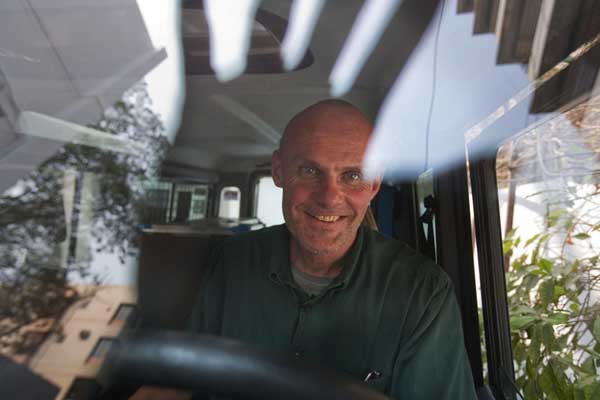
Freedom of thought – Driving ten hours daily for 102 days evokes a type of meditative state and a sense of freedom from domestic concerns. Tom?s Land Rover was not only a rolling studio with its own photo backdrop, but also a canvas for exploring his personal challenges on route. From its safety, he could differentiate real external barriers from those which were mostly in his head.
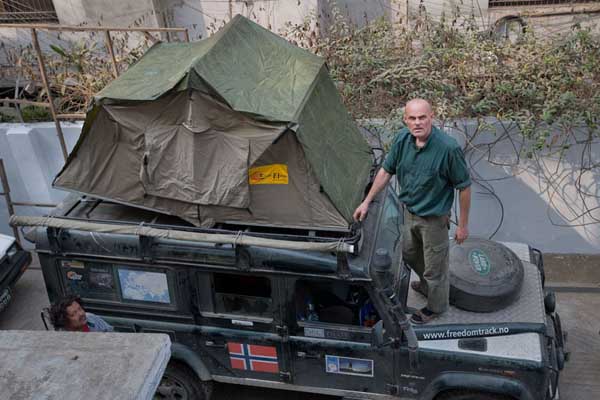
Freedom to congregate – Tom talked to people from around 30 different countries and from all walks of life and social standings. They include the head of the Lithuanian National Opera and Ballet, a world renowned violin maker, a Nobel Peace laureate, authors and activists. But it wasn?t easy to meet people of different ages, genders and nationalities ? in some countries women just aren?t allowed to talk to strangers, in others Tom?s passport was confiscated and he had to follow a military escort.
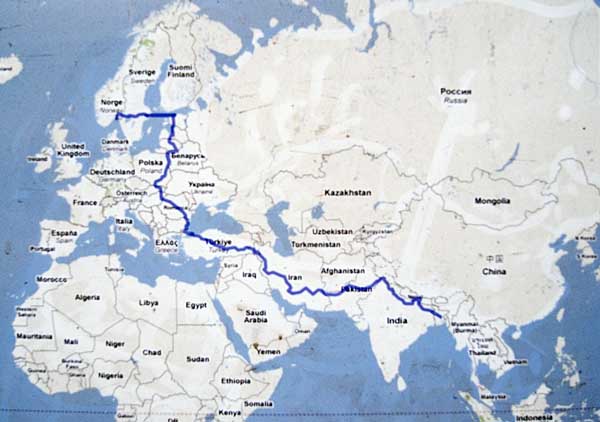
***
Tracing Freedom is a project in cooperation with the Nobel Peace Centre. Tom hopes that these portraits of freedom encourage you to reflect upon the freedom you experience in your own life, country and neighbourhood. Ultimately, he wants Tracing Freedom to help inspire a more open-minded and generous spirit in relation to our acceptance of other people?s attitudes.
***
Tom Hatlestad?s base is in Tj?me, Norway, from where he is currently planning his next Freedom Track journey. Tracing Freedom is supported by H?yanger N?ringsutvikling, Sparebanken Sogn og Fjordane and Fond for Lyd og Bilde.
Scroll down this link to see a description of Tom’s trip to Bangladesh
We miss you Yang
Yang Xiaoguang ? My Best Friend
I have been trying to write for three days but every time I start to type I break down in uncontrollable grief. How do you start to honour such a unique man. Those of you who knew him will understand.

Many I am sure have already written of Yang?s great achievements in life. He was indeed a remarkable man. This however is a personal testament to my best friend. I had only known Yang for four years but in that time he had become like a twin brother, we had planned to grow old together. I was never more content than when I was in his company, always laughing, always talking about new and exciting ideas and always happy. I have lived and travelled throughout the world but can honestly say I respected no other as much as Yang.
To me his greatest skill was always with people. I remember on a trip to Bangladesh he was as comfortable talking to a rickshaw puller as he was an ambassador. He truly believed all men were equal, whatever their race or position and most importantly he treated them all the same, with kindness, with respect and with a glint in his eye and a witty comment that made everyone laugh.
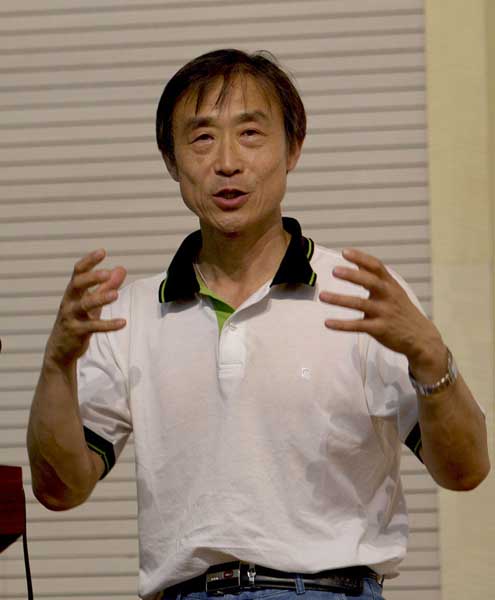
He was also a truly skilful manager and an inspirational teacher. Anyone who spent a day in his office would remember the constant phone calls and stream of people knocking on his door with problems. I never saw Yang angry, he would deal with each one with sympathy and then come up with a solution. People did things for Yang not because they felt it their job or duty but because they wanted to.
If wealth is measured in happiness then Yang died an exceptionally wealthy man. My greatest regret is that he can no longer share that wealth with all of us who knew him. However As Thomas Campbell wrote, ‘To live in hearts we leave behind, is not to die’ and Yang?s spirit will always live in me.
We miss you Yang.
Dave Clark
————–
MA Blog entry
It is with immense sadness that we report the sudden death of Professor Yang Xiaoguang, Dean of Dalian College of Image Art and founder of the Photo MA programme. Yang was killed in a car crash in the Himalayan foothills of Nepal on the 7th October. Yang died in the way he lived, enjoying life to the full.
Yang was brought up during the Cultural Revolution in China during which time he was banished to the countryside. Returning to Dalian in the post Mao era he took a job as a technician in Dalian Medical University where he was to work for the rest of his life. Learning English by himself he took advantage of a scholarship to America in the early 80?s where he first started to study photography, completing an MA in Visual art at Columbia Pacific University. Returning to Dalian he started what was then only the second University Photography BA programme in China and over the next twenty years grew it to be the most respected department in China and quite possibly the largest department in the world. He was visiting scholar at University of California Berkeley from 1988-1990 where he first developed an interest in documentary film making. A passion that saw him travel the world and develop film making into the University programmes. In his life he published eight books and countless articles, he was hugely respected throughout the Chinese and international photography community and leaves a large hole in global photographic education.
Though greatly respected for his achievements however Yang?s utmost quality was his energetic charismatic personality. He was a shining example of greatness in every respect. Always positive, never too busy to deal with the smallest request from anyone, whatever their position, nationality or need and kind, exceptionally kind to everyone who knew him. He was never short of ideas and answers to the numerous problems that faced him. A true ambassador to China and to Photography.
We will all miss him enormously.
Dave Clark
————–
?????
?????????????????????????????????????????????????10?7????????????????????????????????????????????
???????????????????????????????????????????????????????????80?????????????????????????????????????????????????????????????????????????20?????????????????????????????1988-1990??????????????????????????????????????????????????????????????????????????????????????????????????????????????????????
???????????????????????????????????????????????????????????????????????????????????????????? ???????????????????????????????????????????????????????????????????????? ???????????????
?????????
—————
Hi All,
It?s been a harrowing two days but all went smoothly. I spent most my time with Xiao Bing and Wang Jingchun both of whom are making good progress. Xiao Bing is recovering quickly, he has a minor neck injury and cuts and bruises but should be back to normal in a week or two. Wang Jingchun is more serious, still in ICU but stabilising. Both will be flown back to China later today.
I went with Yang?s wife, Chang He and a delegation from the University to see his body and carry out a series of Chinese rituals for the dead. I showed Yang?s wife the facebook site and all the messages you all sent for which she was very grateful. There is a big festival in Nepal at the moment and so all the paperwork was not yet complete for a cremation. Also Yang?s wife was undecided whether she wanted to bring the body back to China for burial. The Chinese consul in Kathmandu has been extremely helpful in sorting these matters out. She will remain until all is finished.
On the trip I also learned from those in the van at the time the full story of the event. They had hired a van with a driver to go on a trip. Presumably because of the festival the driver had not slept for two days. He fell asleep at the wheel and collided with an oncoming truck. Yang was sleeping on the back seat with his head against the window. Thankfully he was killed instantly and would not have known anything about it. Wang King Chun who was on the middle seat also on the driver?s side, was fortunately awake which gave him a split second to move out of the way and save his life. The driver was also killed instantly.
Many thanks for all your messages I will continue to pass them on to Yang?s family. His son has now returned from Australia and will be in Dalian for the next few weeks. I would also like to express immense thanks to Chang He who has worked tirelessly for his class mates and Yang?s family.
With best wishes to you all,
Dave
————
Professor Yang and Dave Clark were visiting artists at Chobi Mela IV (November 2006). Yang gave a talk on “Photographic Education in China” at Chobi Mela IV. During his visit he set up many links with practitioners from other parts of the globe to Dalian, which included Rupert Grey (UK), Norman Leslie (Australia), Robert Pledge (USA/France), Violet Valdez (Philippines) whom he met at the festival.
Freedom
![]()
![]()
Drifting in cage and out again
Hark unknown bird does fly
Shackles of my mind
If my arms could entwine
With them I would thee bind
Rooms it had eight
And doors it had nine
Windows betwixt you find
Up above the glittering hall
Mirrors might make you blind
What fate alas makes bird do thus
Caged bird breaks free to fly
Of bamboo raw the cage I saw
This mind of mine still longs oh so
Lalon Fakir cries as he sees with his eyes
The cage wither and go*
The body, the soul, the self, the universe, Lalon saw freedom not as an entity outside oneself, but as a lived experience. Within yet afar. Ephemeral but tactile. With wings but encaged.
New forms of slavery form new forms of chains. Violence suffered in silence. Ancestral land commandeered. Resistance made illegal.
What mask does freedom now wear? Freedom to profit is the new elixir. Freedom to reach distant markets, to exploit cheap labour. The word that takes us to such dizzying heights leaves the deepest of wounds with its loss. ‘Foreign’ sounding names, ‘wrong’ coloured skin, ‘different’ passports, circumscribe our new freedoms.
Going beyond walls built to occupy territory. Beyond bombs dropped to coerce the unarmed. Beyond cells built to hold the other. Artists paint with colours that don’t exist. Write with words as yet un-invented. Photograph where light is yet to reach. The cage. The door. The wing. The soul. Freedom.
Shahidul Alam
Festival Director
Chobi Mela V
We invite photographers working in the fields of photojournalism, fine art, conceptual or any other field of photography, to interpret the theme “Freedom” in the widest sense possible. Submissions may be made online from 1st March 2008 through to 31st May 2008. Selections will be made by 15th June 2008. Final work must be submitted by 31st July 2008. Festival opens 6th November 2008. Submission guidelines will be available online.
*Translation by Shahidul Alam from “khachar bhitor ochin pakhi” by Lalon Shah.

